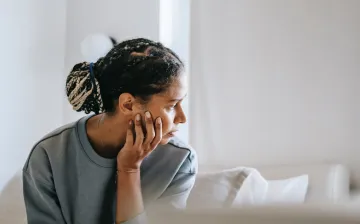
Being ‘OCD’ is a popular phrase these days, but it’s more than being neat and tidy. Obsessive-Compulsive Disorder is a troubling and confusing mental health disorder which can put a real strain on family relationships. How can you help your teen if you think they might have OCD?
Signs your child might have OCD
OCD behaviour can develop slowly and appear in a variety of forms. Lots of people associate OCD with repeated hand-washing, but there’s more to it than that.
Scientists are still unsure why some people develop OCD, but what is certain is it’s nobody’s fault. The good news is that it is a highly treatable disorder, but the sooner it is diagnosed and treated the more chance there is of a better recovery.
Here are some of the more common indicators that your child might be developing obsessive behaviour:
- a desire to have their room tidied in a particular way, with everything perfectly aligned
- repetitive hand-washing or prolonged, repeated showering/bathing
- worrying excessively about their handwriting and neatness of their schoolwork
- worrying about harm coming to loved ones, such as parents, siblings, friends or pets
- going to extreme lengths to protect the family home by repeatedly checking doors or locks
- feeling the need to count while they perform certain tasks, sometimes in multiples of a particular number
- refusing to let go of or discard seemingly useless or old items
- worrying excessively about becoming ill or catching specific diseases.
This is not an exhaustive list and your child may be developing other symptoms at school that teachers may comment upon. At the point where these repetitive behaviours are affecting your son or daughter’s quality of life is the time to get help.
What you can do
Encourage your child to speak with their GP - older children may want to go with your support or they may want to go alone. OCD-UK have created a GP ‘Ice breaker’ which you may wish to print from their website.
Charities such as OCD-UK can help you to find out more about OCD and how it can be treated.
If your child is referred by your GP to another service, find out whether they want you to go with them. Reassure your child and help them to keep their appointments.
How we can help
If you’re looking for support with your relationships, we can help. We offer a range of ways to speak with a trained relationship expert including ongoing counselling, 30 minute web and phone chats, and one session therapy.
Find out which service is right for you
How you can help
Have you found this advice helpful? Make a donation to help us reach more people and continue supporting the nation’s relationships:
Can't afford to donate? We understand. Instead, we ask that you leave us a 5 star review on Trustpilot.
